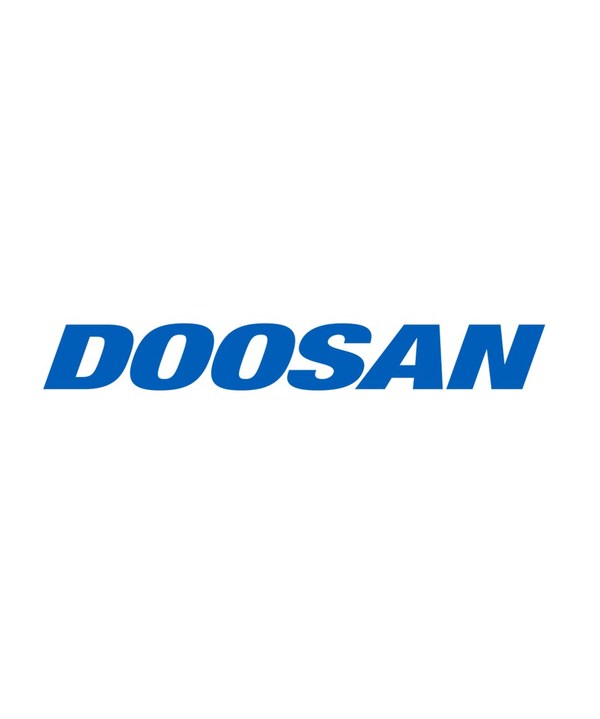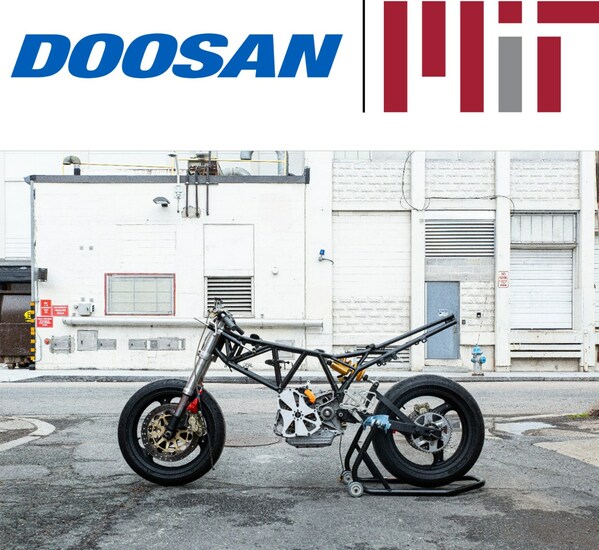 |
CAMBRIDGE, Mass. and YONGIN, South Korea, March 29, 2023 /PRNewswire/ -- The MIT Electric Vehicle Team (MIT EVT), a student-run team on MIT campus that has focused on innovation surrounding electric vehicles for over a decade, is partnering with Doosan Mobility Innovation (DMI), a leading provider of fuel cell technologies, to build a hydrogen powered motorcycle to expand the capabilities of small fuel cell technologies. The team believes that battery-powered vehicles (BEVs) are a stepping off point to hydrogen vehicles (FCEVs) which can solve the range issues of BEVs and address concerns surrounding Lithium mining. The team is advised by Professor Alexander H. Slocum of the MIT Department of Mechanical Engineering.

MIT’s Electric Vehicle Team partners with Doosan Mobility Innovation (DMI) to create one of the first ever open-source, hydrogen-fuel-cell powered motorcycles.
DMI is providing a DM15 fuel cell module that will be integrated into a motorcycle that will be designed and developed by the MIT EVT. The DM15 fuel cell is a cutting-edge technology that provides clean, efficient, and reliable power to mobile applications. The module uses hydrogen as a fuel source and converts it into electricity, producing only water vapor as a byproduct. Assuming green hydrogen production, the technology is a promising step towards a fully zero-carbon footprint vehicle. DMI's DM15 fuel cell module is already in use in several applications, including drones, material handling, and backup power. It offers several benefits over traditional power sources, including zero emissions, high efficiency, and low noise. The DM15 module, in particular, is capable of providing up to 1.5 kW of power output, making it suitable for a wide range of applications, including drones, robotics, and small vehicles.
This will be the first time the fuel cell module is integrated into a motorcycle, and the project will provide a real-world testing ground for the DM15 fuel cell module, enabling DMI to gather valuable data and feedback to improve the module's performance and durability, while allowing the MIT EVT to prove that hydrogen powered vehicles can be practical, and safe.
"The DM15 module is really small, and lightweight making it ideal for integration into a vehicle like a motorcycle," says project lead and MIT student Aditya (Adi) Mehrotra. "We hope to work with DMI and their fuel cell technology to really push the boundaries of what EVs can do, and showcase the capabilities of hydrogen as an alternative fuel source."
The partnership between DMI and the MIT EVT is a testament to the importance of collaboration in developing new solutions to address environmental challenges. To this end, MIT EVT will also be open-sourcing a lot of the resources from the design of their motorcycle. While the team won't be open sourcing the fuel cell technology itself, much of the design process and calculations will be available online in an effort to bring more companies, and individuals into the fuel-cell vehicle space. "The more people we have working on this, the faster it might become a reality, and the faster we can build a greener planet," says Adi.
Through this partnership, both organizations aim to contribute to the development of sustainable transportation solutions for a cleaner and greener future. This collaboration is an excellent example of how academia and industry can work together to drive innovation and create a sustainable future.